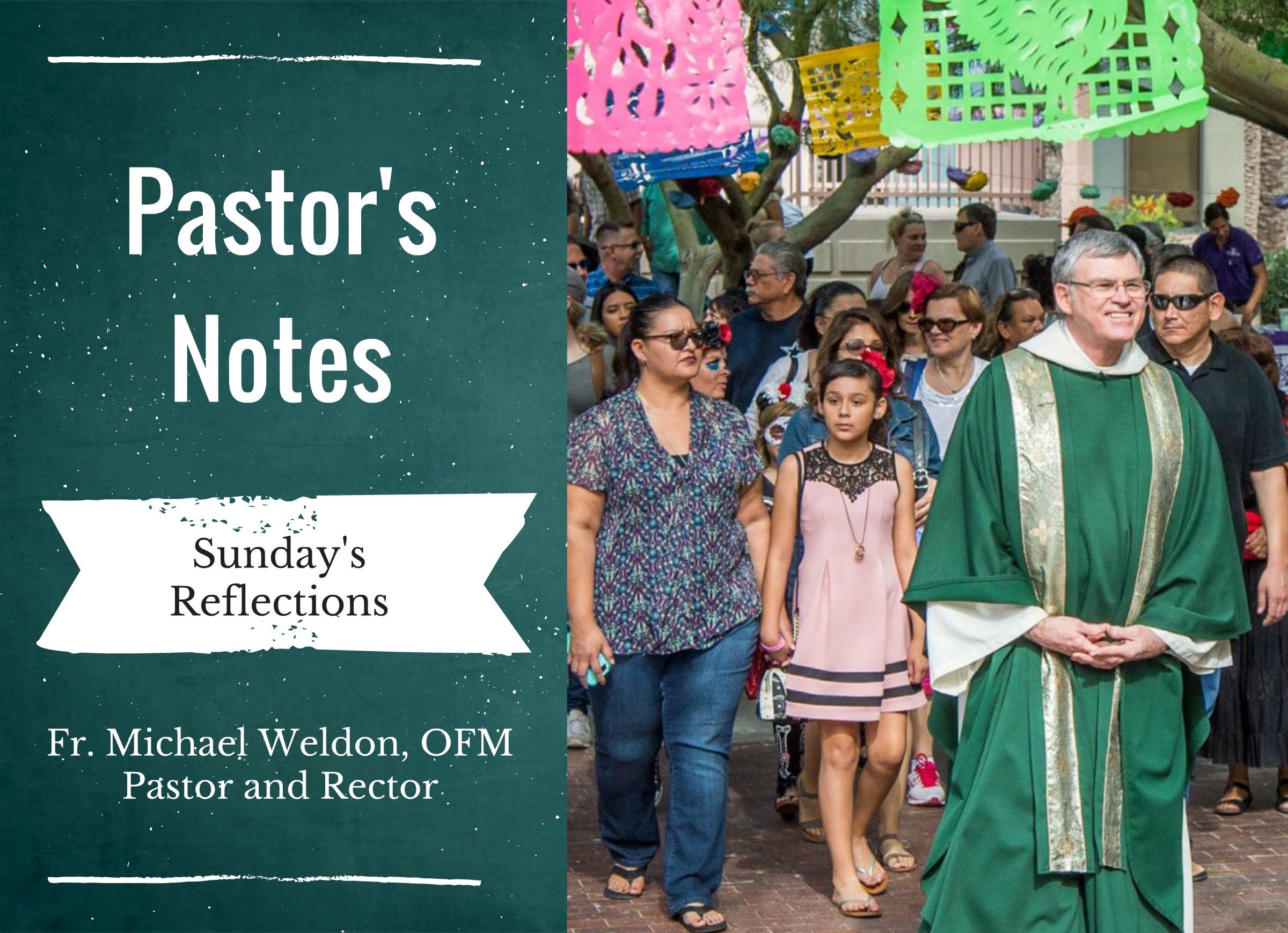St. Mary's Basilica
Phoenix, Arizona
Pastor’s Notes

“Us & Them”
Summer is waning. Even with the Phoenix record heat, the controversy over safety and the fall opening of our schools are signs that a season is changing. We are gearing up for a historic second half of 2020 with a hybrid of activities, some live-streamed and some direct opportunities for service and enrichment, sacraments and beautiful cultural events. We are on our way to a new chapter of St. Mary’s history.
The readings this weekend focus on the “Gentile” and outsider designations to the people of Israel. “Us” and “Them” has been the dividing line between communities through much of human history. Jesus in Matthew’s Gospel seemed to be asking us to re-negotiate the lines between who is “in” and who is “out” of our communion.
On his first trip outside Rome after his election, Pope Francis went to the southern Mediterranean island of Lampedusa, a major point of arrival for migrants from Africa and the Middle East who seek entry into Europe. He wanted to commemorate the roughly 20,000 people who have died trying to make the crossing and to show solidarity with those who survived. At the end of his homily, he prayed, “Lord, we beg forgiveness for our indifference to so many of our brothers and sisters.” After the public ceremony of remembrance, he sent this tweet: “We pray for a heart which will embrace migrants. God will judge us upon how we have treated the most needy.”
The great migrations of peoples throughout the globe calls the followers of Jesus to a real change of heart. Keeping our humanity when others, in the struggle for turf and resources, seem to be abandoning theirs… is a full-time job. Every human institution has a struggle to embrace those it sees as “different” or “alien.” Israel faced that challenge sometimes well, other times poorly in its history. Today’s reading from Isaiah foresees the time when people from many nations will stream toward Jerusalem and the temple will be “a house of prayer for all peoples.” The liturgy reminds us of that vision every time we gather for Eucharist at the Lord’s Table.
The movement beyond Israel’s tribal identity is reflected in Jesus’s very curious encounter with the Canaanite woman in today’s Gospel. It appears that Jesus is pushed by this non-Israelite woman to expand his horizons beyond “the lost sheep of Israel.” The early church had to struggle with this issue when St. Paul reached out to the gentile communities of non-Jews to proclaim the Gospel to them. The Letter to the Romans reminds us of that. The challenge continues to confront us today, as Pope Francis has made clear.
St. Mary’s has struggled with this issue in its long Phoenix history. Next to our front door is an old photo of Friar Novatus Benzing, OFM the builder of the 1915 structure that would be our basilica. It shows him with gathered children from our schools of every local ethnic and cultural mix possible. Our parish has a hard-won discovery of a unique diversity and hospitality over the years. The story has been a great gift to the wider Christian family of our area. It continues to surprise us and to move us. The question of “which lives matter” has broken into our COVID “shelter in place” again over the past months. Another kind of human world is evolving from the tensions as we answer once again from our faith and the ever-present Spirit of Jesus. There is and never has been, an “Us” and a “Them.” “Only we,” as St. Clare wrote to Lady Agnes of Prague, “are the dwelling place of God.”
A gentle week,
Fr. Michael Weldon, OFM
